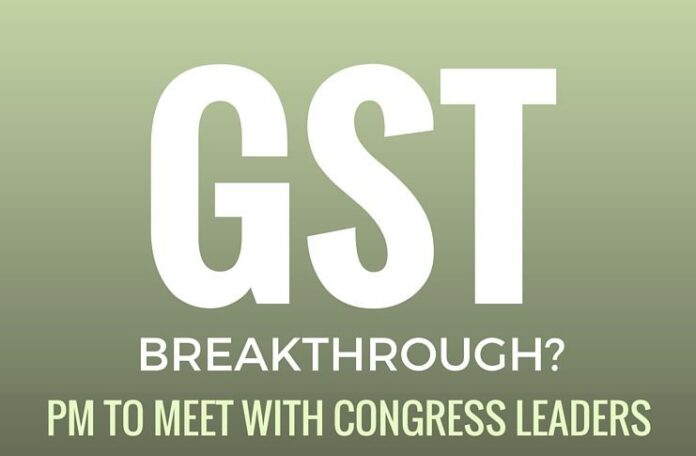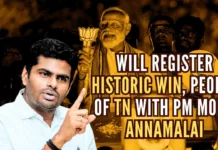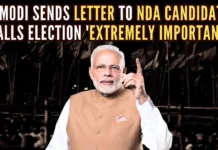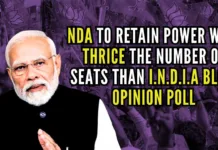
New Delhi
[dropcap color=”#008040″ boxed=”yes” boxed_radius=”8px” class=”” id=””]A[/dropcap] breakthrough on the long-pending Goods and services tax) GST) bill seemed imminent with Prime Minister Narendra Modi finally reaching out to the Congress leadership to iron out some difference over the issue. The PM has invited Congress President Sonia Gandhi, Party Vice-president Rahul Gandhi and former Prime Minister Manmohan Singh over tea to discuss the Congress pre-conditions for backing the legislation in Parliament.
The ‘chai pe charcha’ comes in the backdrop of the Congress enlisting three key demands to back the Bill. These are: scrapping one percent addition tax on inter-state sale of Goods, a cap of 18 percent for GST rate through constitutional amendment, and an independent dispute resolution mechanism for GST.
Confirming the invitation extended by the PM to Sonia, Rahul and Manmohan, Parliamentary affairs minister Venkaiah Naidu told media persons that he hoped that the meeting would lead to a positive outcome.
[dropcap color=”#008040″ boxed=”yes” boxed_radius=”8px” class=”” id=””]T[/dropcap]his is the first time that Modi has himself reached put to opposition leaders — a task which he had mostly assigned to Finance minister Arun Jaitley and Naidu. After the drubbing the BJP got in Bihar, the party leadership seemed to realize that for smooth functioning of Parliament and passage of legislations they will have to reach out to the Opposition. This approach is in stark contrast to what happened in the last session of Parliament when the Congress MPs were thrown out of the house by marshals in Lok Sabha, and Naidu told the Opposition in Rajya Sabha that they will have to listen to the government for five years since the people had voted for the BJP.
The Government has the backing of most opposition parties on the bill tho0ugh many of them want the several amendments. The one percent tax on inter-state sale of Goods, which will primarily help manufacturing states like Gujarat, is not acceptable to most opposition parties.
Like most opposition parties, which want the GST bill to be passed, the Congress too is ready to stand by the government on this crucial legislation, but the government will have to agree for some give-and-take on its pre-conditions, said a senior Congress leader.
[dropcap color=”#008040″ boxed=”yes” boxed_radius=”8px” class=”” id=””]T[/dropcap]he Congress leadership has repeatedly reminded the Modi government that the BJP has sabotaged the passage of the Bill for eight years and it was specially the Gujarat government headed by Narendra Modi and two other BJP ruled states of Maharashtra, Chhattisgarh and Madhya Pradesh which did not allow the Bill to be passed. If the BJP had allowed GST to become reality during the last ten years whrn the Congress was in power, the e GDP of the country would have improved substantially.
“Why should the BJP make such a song and dance about the delay when they did not allow the GST to become reality for ten year years,” said a senior Congress leader.
However, the leader indicated the Congress was not going to be roadblock in passage of the bill. He said the party would also be ready for some sort of compromise on its three key demands.
Following are the ten key points of the GST Bill.
| 1 | Officially, the Constitution (One Hundred and Twenty-Second Amendment) Bill 2014. |
| 2 | It was introduced in the Lok Sabha on December 19, 2014 by Finance Minister Arun Jaitley. |
| 3 | The Bill seeks to amend the Constitution to introduce a goods and services tax (GST) which will subsumes various Central indirect taxes, including the Central Excise Duty, Countervailing Duty, Service Tax, etc. It also subsumes State value added tax (VAT), octroi and entry tax, luxury tax, etc. |
| 4 | The Bill inserts a new Article in the Constitution make legislation on the taxation of goods and services a concurrent power of the Centre and the States. |
| 5 | The Bill seeks to shift the restriction on States for taxing the sale or purchase of goods to the supply of goods or services. |
| 6 | The Bill seeks to establish a GST Council tasked with optimising tax collection for goods and services by the State and Centre. The Council will consist of the Union Finance Minister (as Chairman), the Union Minister of State in charge of Revenue or Finance, and the Minister in charge of Finance or Taxation or any other, nominated by each State government. |
| 7 | The GST Council will be the body that decides which taxes levied by the Centre, States and local bodies will go into the GST; which goods and services will be subjected to GST; and the basis and the rates at which GST will be applied. |
| 8 | Under the Bill, alcoholic liquor for human consumption is exempted from GST. Also, it will be up to the GST Council to decide when GST would be levied on various categories of fuel, including crude oil and petrol. |
| 9 | The Centre will levy an additional one per cent tax on the supply of goods in the course of inter-State trade, which will go to the States for two years or till when the GST Council decides. |
| 10 | Parliament can decide on compensating States for up to a five-year period if States incur losses by implementation of GST. |
- NIA confiscates Pak-harboured Khalistani terrorist Lakhbir Singh Rode’s key aide’s land in Moga - April 19, 2024
- Prime Minister Narendra Modi: A Gujju businessman who does not invest his precious time for a losing battle - April 13, 2024
- NIA arrests two accused Shazib and Taahaa in Bengaluru’s Rameshwaram Cafe blast case from Kolkata - April 12, 2024










